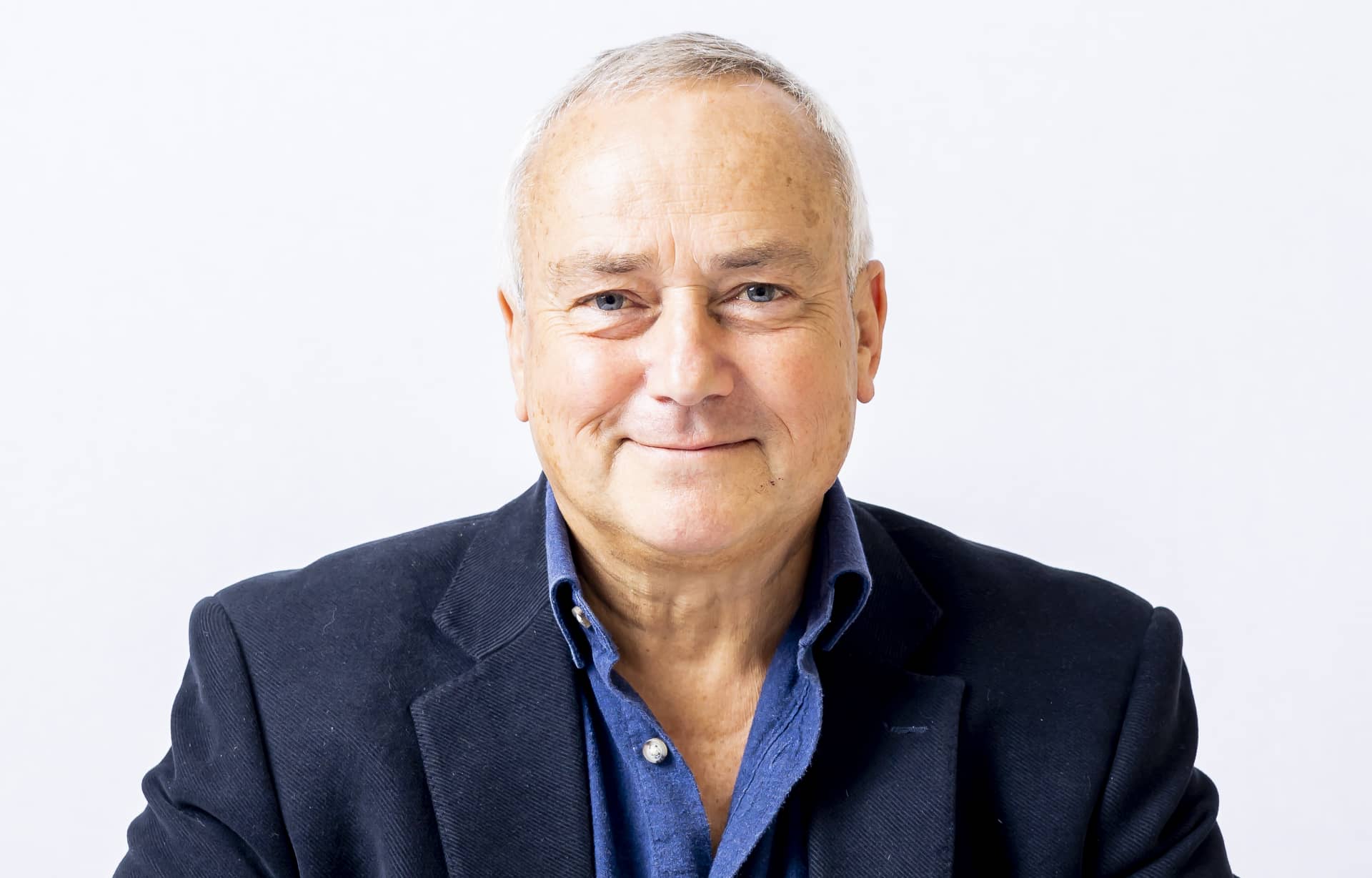News OnTheWight recently sat down with director of Venture South and one of the founders of Film Wight, Bonchurch resident, Stephen Izatt.
In our half-hour interview, Stephen explains how FilmWight – which was set up to make it as easy as possible for films/TV to be made on the Isle of Wight – came to be, why it was necessary and the opportunities and economic growth it’s already bringing to the Island.
What is FilmWight?
Launched in March 2021, FilmWight was created in response to the Isle of Wight’s growing creative sector and the need for a central point of contact for the industry.
It’s part of Venture South, a not-for-profit organisation whose sole objective is to stimulate job opportunities in the creative sector on the Island, and promote the Island as a place to shoot films, make TV series, adverts or music videos.
A growing creative sector
We spoke to Stephen before the exciting news about Medina Studios was made public, but in our interview he outlined how we already have a plethora of editors and producers, living on the Island, who would much prefer to work here, rather than travel to places like Eastern Europe.
In fact, many do already edit, or direct, TV ads, films, even the BBC’s One Show, from their own home studios.
How it came about
Stephen explains that prior to the dedicated Film Office being setting up, it fell to the Isle of Wight council and Visit Isle of Wight to liaise and assist film shoots on the Island.
Whilst that has most likely been an exciting experience for those involved, it’s not their core business and they were not in the position to offer the depth of experience and wealth of contacts that a dedicated Film Office can.
Learning how to establish a Film Office
Once it was established that Film Office was needed, a great deal of research was carried out, with FilmWight speaking to other Film Offices around the country, as well as UK Film and Creative England.
These organisations (such as the Filming in England unit) put filmmakers in touch with Film Offices around the country.
Stephen explained,
“What we were told was, to be a Film Office accredited by them you have to be a non-profit, approved by the council or part of the council’s organisation. You can’t be a commercial organisation in any way.
“It has to be something that is there for the good of the place.”
No-one met the criteria
When FilmWight asked, ‘what else?’ Filming in England said,
“To be frank with you, we’re very confused by the Isle of Wight, because quite a few people have come to us saying, ‘Ah well we’re the film office’, ‘We’re the film office’, ‘I am Spartacus!'”
Stephen explained,
“None of them really were meeting the criteria that was needed. They were mostly commercially interested and weren’t approved by the council as such.
“Some of them were actually trying to do the good for the Island that we were looking to do as well, but that is what was missing.”
Building the database
The next stage went through very quickly with help being pulled in from all quarters, building a database (which is still being added to) of people, locations and services.
Stephen said,
“Lots of people came out of the woodwork to say, ‘I’m an editor’, ‘I’m a producer’, ‘I’m a rigger’, etc.”
As well as Islanders in the Creative Industries putting themselves forward for work, a range of premises and locations available to hire for film shoots came to the fore.
Creative England told FilmWight that it was the fastest time that a Film Office had been set up in before
Other issues the Island faced
The next question to address for FilmWight was why more producers and filmmakers were not coming to the Island.
Stephen explained this was down to a few issues, the first being the idea that it would be prohibitively expensive to cross the Solent (this is addressed below) and the other was that there are no film studios here (something that is due to change, we’re told, as early as Summer 2023).
Film studios bring opportunities for Islanders
There are a number of reasons why a film studio would be needed if the Island is to attract filmmakers here. Stephen went on to say,
“So they can build internal sets, build a sound stage, it might be green screen, might be all sorts of other things, and also the infrastructure that goes with the studio. If you go to somewhere like Shepperton or Pinewood, there are these big sound stages, but there’s a little village of industries around them.
“Post-production, data transmission, set building, you’re talking about carpenters, electricians, lighting specialists, rigging specialists.
“There are editing suites, screening rooms where you can see the rushes for the day. All those sorts of things grow up around a studio, so it’s an essential hub for the unit.”
“We want to be the conduit for work that they might not otherwise get”
Creating the Film Office means there will be a single point of contact, a single liaison for Filming in England that they can come to with questions and enquiries.
“Lines of communications are now much more centralised.”
Acting as a funnel, Stephen stressed,
“We are absolutely not replacing those organisations that are already here. People that supply extras, people that supply lighting, people that supply locations in some cases.
“We will farm out enquiries to those people, that’s what we want to do. We want to be the conduit for work that they might not otherwise get.
“They already get some, but we want bigger things and we want it more frequently.”
Huge support from Wightlink
Addressing the issue of the cost of crossing the Solent, FilmWight next went to Isle of Wight ferry company, Wightlink, and negotiated with them.
Stephen explained,
“They could absolutely see all the benefits of placemaking and bringing people across on their ferries.
“They were incredibly supportive, so now we have this thing called the FilmWight Pass.”
This means that anyone coming to the Island to do a recce (before the production, various locations are looked at to see if the film/TV prog could be made there) gets free travel, if booked through FilmWight. There’ll also be a hefty discount (around 50 per cent) for the production units travelling down once the shooting is underway.
Not only this, but Wightlink invested cash into FilmWight to help set it up.
Two productions already slated for Medina Studios
When we spoke to Stephen, he was bound by a non-disclosure agreement so couldn’t share too much about the new film studio planned for Island, but he was able to say that there are already two productions slated for it and that it’s due to be operating in 2023.
“It’s very exciting.
“We worked with the consortium [who are investing in the film studio] very early on to get them familiarised with what’s going here, showed them various sites.”
He went on to add,
“Generally there is a shortage of film studios in the UK, in fact in Europe, so it’s a very attractive proposition.”
Talent already based here
The final issue, Stephen explained, that came out from talking to production companies was having to bring all the talent with them.
They were not talking about the actors, but Directors of Photography, set builders, camera people, extras, etc.
FilmWight were able to reassure producers that the Island has all this talent in abundance, as the production of Britbox series The Beast Must Die proved.
How tradespeople can get involved
With the growth of the film industry on the Island, so increases the opportunity for not just those involved with filmmaking to get involved, but also tradespeople.
Stephen said there’s nothing to say that anyone with building skills can’t be extremely useful to the unit.
“The key thing is to do a bit of reading, see if it’s the sort of thing you can do and register with the FilmWight unit.
“Your skills could be totally transferable to the film industry.”
A real world example
As an example, Stephen shared details about the electrician who did all the electrics at Ventnor Arts Club when it was first set up, had to learn quite bit on the job in relation to use of LEDs.
With those skills he has since gone on to work on Star Wars and has operated in the film world pretty much ever since.
Bringing opportunity to the Island
Stephen finished our chat by stressing once again that they are not in business to make money.
“We want to bring people here to make films that showcase the Island, which is great for placemaking and tourism, but the bigger the productions can really make a difference for employment and opportunities for the young people – there are loads of junior roles on these things, everything from runners through to catering units.
“All of these things are really great opportunities to get the taste of what it’s like.”
Listen to the podcast
You can listen Simon’s interview with Stephen
Background
Stephen has an established career in brand design, is the founder and Managing Director of London-based brand agency, Think Farm. He’s worked with clients such as Team GB (the British Olympic Association), Amnesty International, The O2 and Agent Provocateur, as well as closer to home with the wonderful Mountbatten.
He is also the owner of Ventnor Arts Club, a luxurious venue on the south coast of the Island which plays host to live music, film screenings, launch events, and each summer opens its doors for Ventnor Fringe Festival.
Image: © Julian Winslow





